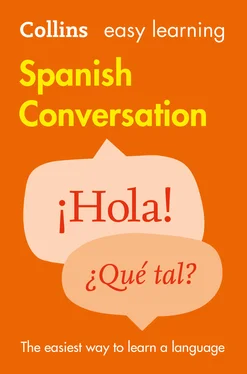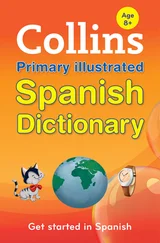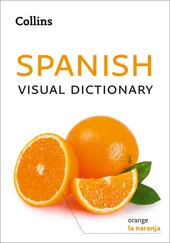There may be times when you wish to make an apology to somebody. The simplest way to do this is to say perdona(to someone you speak to as tú) and perdone(to someone you speak to as usted).
| Perdona. |
I’m sorry. |
| Perdona porno pasar a verte, pero no tuve tiempo. |
I’m sorryI didn’t call in, but I didn’t have time. |
| Perdone quellegue tarde. |
I’m sorryI’m late. |
| Siento nohaberte llamado para decírtelo. |
I’m sorryI didn’t phone to let you know. |
¿LO SABÍAS?
If you need to get past someone, or if you bump into them, just say perdón( excuse me or sorry ).
| Lo siento, pero no puedo ir. |
I’m afraid thatI can’t come. |
| Lo siento, pero no entendí tu nombre. |
I’m afraidI didn’t catch your name. |
| Me temo queno tengo tu número. |
I’m afraid thatI don’t have your number. |
In social situations you will often want to find out more about someone or their family, job and so on. To do this use háblame( tell me ).
| Háblameun poco de ti. |
Tell mea bit about yourself. |
| Háblamede tu familia. |
Tell meabout your family. |
| ¿ En quéconsiste tu trabajo? |
Tell mewhat your job involves. |
You can use the next questions when chatting socially.
| ¿ Cuál estu dirección? |
What’syour address? |
| ¿ Cuál esel número de teléfono de Francisco? |
What’sFrancisco’s phone number? |
| ¿ En quétrabajas? |
Whatdo you do for a living? |
| Perdona, ¿ quéhas dicho? |
Sorry, whatdid you say? |
| ¿ Quésignifica ‘azafata’? |
Whatdoes ‘azafata’ mean? |
| ¿ Cómote llamas? |
What’syour name? |
You’ll often want to find out where things are. Remember that when you use ¿Dónde…?, estáis how you generally translate the word is .
| ¿ Dóndequieres que quedemos? |
Wheredo you want to meet? |
| ¿ Dóndetrabajas? |
Wheredo you work? |
| ¿ Dóndevives? |
Wheredo you live? |
| ¿ Dónde estátu piso? |
Where’syour flat? |
| ¿ Dóndete quedas? |
Whereare you staying? |
| ¿ De dóndevienes? |
Wheredo you come from? |
| ¿ Cuándoestarás aquí? |
Whenwill you get here? |
| ¿ Cuándoes tu cumpleaños? |
When’s your birthday? |
| ¿Sábes cuándodará a luz Marta? |
Do you know whenMarta’s baby’s due? |
| ¿ A qué horaquieres quedar? |
Whendo you want to meet? |
| ¿ Cuánto tiempo hace queestás en España? |
How long haveyou been in Spain? |
| ¿ Cuánto tiempo hace quetrabajas aquí? |
How long haveyou been working here? |
| ¿ Cuánto tiempo hace queesperas? |
How long haveyou been waiting? |
One very versatile way of asking someone socially how something is going or has gone is to use the phrase ¿Qué tal…?and then the noun in question. You don’t need to use any verb at all.
| ¿ Qué tallas vacaciones? |
How wasyour holiday? |
| ¿ Qué talel vuelo? |
How wasyour flight? |
| ¿ Qué talel hotel? |
How’sthe hotel? |
Sometimes you’ll want to ask why a friend or acquaintance did or didn’t do something. You can use ¿Por qué…?and a past tense to ask the question ( Why…? ).
| ¿ Por quéte fuiste de Barcelona? |
Whydid you move from Barcelona? |
| ¿ Por quédecidiste dedicarte a la enseñanza? |
Whydid you choose a career in teaching? |
| ¿ Por quéno fuiste ayer? |
Whydidn’t you go yesterday? |
| ¿ Por quéno me llamaste anoche por teléfono? |
Whydidn’t you ring me last night? |
SAYING WHAT YOU WANT TO DO
When talking to friends and colleagues there’ll be plenty of things you’ll want to do together. To say what you would like to do, you can use me gustaría( I’d like ). This comes from the verb gustar.
| Me gustaríadarte las gracias por tu ayuda. |
I’d like tothank you for helping me. |
| Me gustaríahablar luego contigo. |
I’d like tospeak to you later. |
| Nos gustaríapresentarte a un amigo. |
We’d likeyou tomeet a friend. |
| Nos gustaríainvitarte a tomar una copa. |
We’d like toinvite you out for a drink. |
Alternatively, you can use quierofollowed by the infinitive. If you want someone else to do something for you, use quiero quefollowed by a verb in the subjunctive. For more information on the subjunctive, see here.
| Quieroorganizar una fiesta sorpresa. |
I want toorganize a surprise party. |
| Quieroinvitar a algunos amigos para mi cumpleaños. |
I want tohave a few friends over for my birthday. |
| Quiero quevengas conmigo. |
I wantyou tocome with me. |
| Quiero queesta noche todo salga bien. |
I wantthis evening tobe a success. |
You may want to ask people you know what you should do. One way to do this is to use ¿Crees que debo…?( Should I…? ) followed by a verb in the infinitive. debocomes from the verb deber. For more on deber, see here.
Читать дальше












